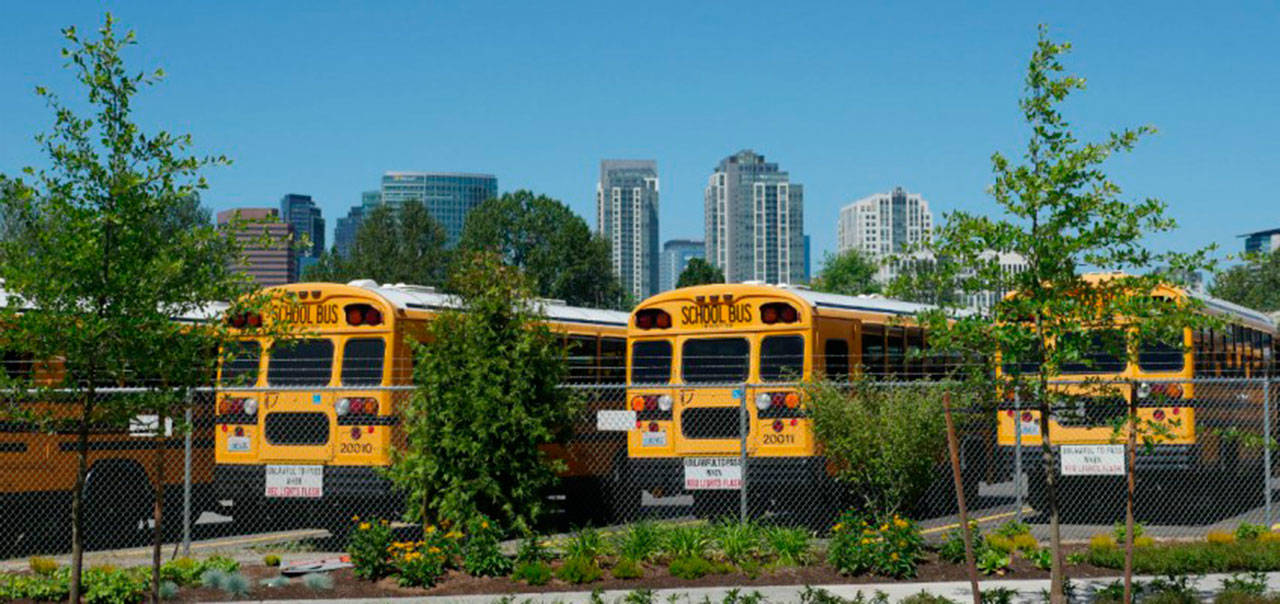This may surprise you, but one thing legislative leaders and the governor agree on is that new taxes are needed to help cover the state’s unpaid tab for public schools.
But they disagree sharply on who among us should pay more.
They all want the financial burden of added taxes to be shared in a fair fashion and they’ll spend the rest of the legislative session figuring out how to do that.
Democratic Gov. Jay Inslee thinks wealthy families, carbon-emitting corporations and a batch of service businesses should foot the multibillion-dollar bill to get the state right with the Constitution and the state Supreme Court.
He would impose taxes on the capital gains of 46,000 wealthy people and the carbon emissions of 1,500 firms, including oil refineries and public utility districts. And he would hike the tax rate for 170,000 service businesses including lawyers, realtors, janitors and landscapers.
Republican senators think the money should come primarily from owners of homes and businesses in Washington’s priciest zip codes. They included a new statewide property tax in the school funding plan passed by the GOP-controlled Senate earlier this month.
Majority Democrats in the House are still to be heard from. Caucus leaders say they won’t pursue a sales tax hike or traditional income tax. They are eyeing what the GOP and governor put forth plus other money-generating moves such as axing the 1 percent cap on raising property taxes.
Inslee isn’t waiting for House Democrats to get the debate rolling. He used a recent meeting with reporters to argue the Senate approach is unfair.
Relying on an analysis prepared by his budget office, the governor said the GOP plan would result in a $513 million tax hike on a third of Washington residents to pay for a roughly $403 million tax cut for property owners in the rest of the state. That doesn’t leave much for schools, he said.
He cited predictions of a $321 increase for the average homeowner in Cle Elum and $456 for homeowners in Issaquah in 2019. That’s the first year the full Republican property tax would be in effect.
The analysis also showed property taxes going up in school districts in Seattle, Bellevue, Mercer Island, San Juan Island and the governor’s hometown of Bainbridge Island. Dollars generated from Seattle and Bellevue alone would account for 60 percent of the new revenue envisioned in the GOP plan.
“We’ll have to have a discussion whether people in Issaquah, people in Cle Elum or people in any of those other places in the state think that’s the best way to address this issue,” he said. “We kind of love all Washingtonians. No matter where you live. No matter what your economic circumstances are.”
Inslee’s plan also would generate tax cuts. In his case, a portion of new taxes collected from the rich and the polluters would go to reduce tax burden of owners of homes and businesses in those same pricey zip codes.
Seattle, Bellevue, Mercer Island, Issaquah, San Juan Island and Bainbridge Island are among 119 school districts where property taxes would go down under the governor’s approach.
In Seattle, for example, the bill for the average homeowner would go down $205 under the governor’s plan and up $628 with the Republican approach, based on analyses prepared by the Office of Financial Management.
On Mercer Island, where the average home price hovers around $1.2 million, taxes would dip $492 under Inslee’s plan and rise $1,302 with the Republicans’ levy. There would be tax cuts of $243 in Bellevue and $107 in Bainbridge Island with Inslee’s plan, and tax hikes of $939 and $488 respectively with the GOP proposal.
There’s going to be a lot of discussion on what approach is most fair.
That’s another thing legislative leaders and the governor agree on these days.
Political reporter Jerry Cornfield’s blog, The Petri Dish, is at www.heraldnet.com.



